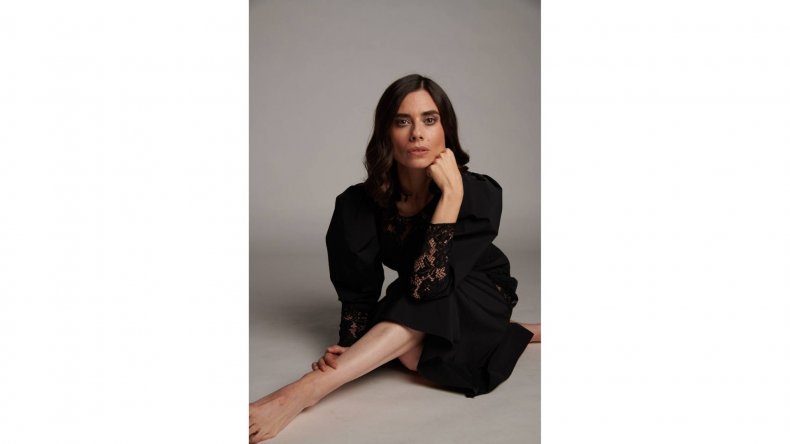How Blockchain helps me hit the high note

“It’s cancer.”
It’s not a phrase you want to hear your doctor say when you’re only 23 years old. A week earlier I had graduated from university and was on my way to a promising career as an opera soloist. Now I was in hospital with a life-changing diagnosis. I remember big, hot tears falling from my eyes. I was so shocked I couldn’t even blink. My doctor assured me that I had the “best kind” of cancer and that it was highly treatable, but not without risk.
While outlining the dangers of the surgery, he went on to explain that if things went really badly, the procedure could render me mute. Not being able to speak was one thing, but not being able to sing? At that point in my life, singing was the only thing I cared about. It was my passion – and worse – my identity.

Kerstin Hammerschmidt
Fortunately, when the day of my surgery finally arrived, everything went as well as it could. Nevertheless, the rehabilitation took a long time. I had lost a lot of weight and my voice didn’t work like it used to. I felt like I had to start from scratch and that all my plans were shattered. I was devastated. But I didn’t give up. I started working every day, just like I used to. It was boring and frustrating, but I kept going.
A new beginning
I had no idea that a local businessman was about to change my life.
He said he had been listening to me for a while and thought I was talented. He asked what my future plans were and told me that if I wrote him a business plan, he would help finance my vision. I didn’t even know what a business plan was at that point. But somehow I understood, and presented him with a proposal. And true to his word, he funded my vision.
I went to Germany, the opera capital of the world, to try my luck. I was full of hope, but it didn’t take me long to realize that I lacked many of the necessary skills to excel in my field.
Although I had graduated from a very good music program in Canada and could sing quite well, I was not prepared for the “business” side of the music industry. But I kept trying, and eventually I was able to build the expertise I needed on my own, without the guidance of an expensive studio or agent—the paths most singers are taught to follow.
I didn’t know it at the time, but the skills I gathered would later serve as the foundation for the work I would eventually do at Living Opera, the company I founded to inform, equip and empower artists to build lasting careers with knowledge and skills beyond their enormous artistic talents.
It wasn’t until these knowledge gaps were filled that I experienced my first “big break” and landed a job at the prestigious Festival Aix-en-Provence, eventually continuing to sing all over the world until the 2020 global closures.
Pay it forward
While the opera industry allowed me to realize my dreams of a singing career, I noticed that many performers I interacted with when I started Living Opera in 2019 were struggling with the same professional issues I had overcome. It seemed that not much had changed in the 10 years I had been singing professionally.
I began to find ways to connect singers directly with philanthropists and fans of opera with hopes of recreating the happiness I had experienced early on. Living Opera’s first initiative “Hope Sings” fell flat when we were unable to secure $50,000 to pair dozens of professional singers with hospital patients (via Zoom) during the pandemic. I was disappointed, but I continued to try to find a solution. With billions of dollars spent on philanthropy in the US alone each year, I was confident I could find a source of funding for my burgeoning community of emerging artists.
I had a lightbulb moment in November 2021 when I attended NFT.NYC and learned about the potential that blockchain technology had to bring together seemingly disparate communities around social causes. I was hooked. I quickly expanded the focus of my company from education to developing digital assets that could be used to fund philanthropic activities.
I discovered how blockchain could securely connect people directly with each other, eliminating the intermediaries and overhead costs that complicate the process and increase the costs of conventional grantmaking. When I learned about NFTs, I saw them as the vehicle to bridge the gap between artists and philanthropists. Now, as we prepare to launch the Living Arts DAO (decentralized autonomous organization), I believe we have finally landed on a solution that will fund our artist community and take our philanthropic ambitions to scale.
Although singing remains my life’s passion and I am excited about my opportunities in the upcoming season, the work I do to ensure that the artists who come after me have something worth inheriting drives me day by day. Their voices must also be heard.
—
Soula Parasidis is CEO and main founder of Living Opera. She is also an international opera singer, speaker and passionate advocate against human trafficking with a Bachelor of Music from the University of British Columbia.























